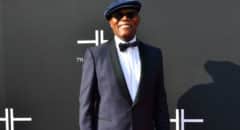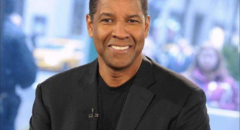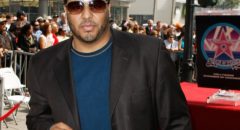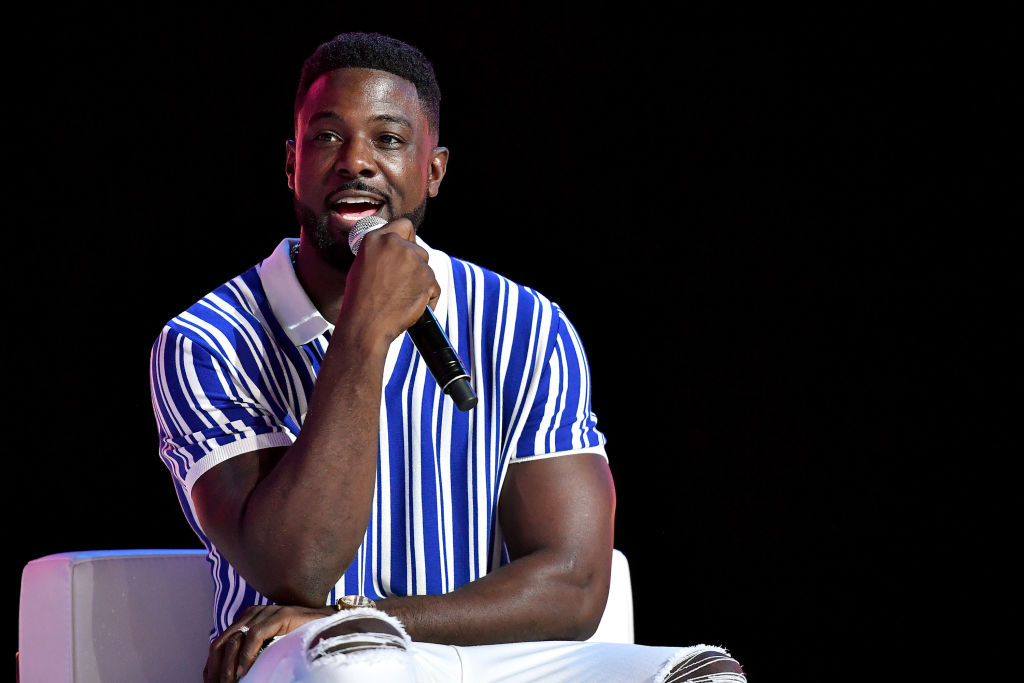
Actor, model and photographer Lance Gross has had quite a great last couple of years. He had his first child, got married to his longtime girlfriend, just welcomed his second child, a son, and was praised for his stunning photography. All in all, Lance said that this is a time when he couldn’t be happier.
The actor has taken Hollywood by storm in just a few short years. From being seen on the small screen in Tyler Perry’s “House of Payne” or on the big screen in “Our Family Wedding” and “Tyler Perry’s Temptation.” The model-turned-actor also wasn’t always comfortable in his skin and was even made fun of for it. But his undeniably great smile and skin are what he takes pride in daily.
Lance on Loving His Dark Skin
“Two things I am proud of are the ability to smile through any situation and the rich melanin and layers of my body,” he wrote in a post after his son was born, whose skin favors his. “For my daughter or son to share that blessing makes me overjoyed.”
“Being in the public eye, I like to keep myself nice, clean and shaven,” says the 44-year-old actor.“I have sensitive skin. If I’m at work all day and have makeup on, then I make sure it’s off of my face before I leave the set.”
“I’m also big into moisturizing my skin,” Lance admits. Using a simple, non-abrasive soap isn’t the only key to Lance’s skin, it’s also consistency. “I like to keep my skin clean and moisturized and then I’m good to go.”
READ: How To Get Idris Elba’s Body
Colorism Inside the Black Community
Not everyone loves their dark skin like Lance.
Colorism in the Black community is a complex and deeply rooted issue with historical origins in slavery and colonialism. It involves discrimination based on skin tone, favoring lighter skin over darker skin, and often associating lighter skin with more positive attributes.
Historical Roots:
During slavery, lighter-skinned slaves were often favored by slave owners, leading to a hierarchy within the slave community.
This preference for lighter skin persisted after slavery, with practices like the “Brown Paper Bag Test”.
Present-day Manifestations:
Within the Black Community: Some Black people unfortunately internalize these biases and show a preference for lighter-skinned individuals. This can create divisions and further disadvantage darker-skinned individuals.
- Societal Advancement: Colorism can hinder societal advancement for darker-skinned individuals in areas like education, income, and job opportunities.
- Criminal Justice System: Studies suggest a link between darker skin and harsher treatment within the criminal justice system.
- Media and Beauty Standards: Media representation often favors lighter-skinned individuals with more Eurocentric features, reinforcing colorist beauty ideals. This can negatively impact the self-esteem and self-worth of darker-skinned individuals.
- Mental and Physical Health: Colorism can contribute to psychological distress, low self-esteem, anxiety, and even physical health concerns, as some individuals resort to potentially harmful practices like skin bleaching to conform to colorist standards.
Skin Color Outside of the Black Community
A 2019 YouGov study of hundreds of Black Americans found that those identifying themselves as having the darkest skin type are more likely to say that they frequently experience racism.
The idea that Black Americans with the darkest complexions are more likely to experience racism is widely acknowledged among respondents. Two thirds (64%) of Black Americans believe that darker-skinned Black people are indeed more likely to experience racism or discrimination than those with lighter complexions – only one in five (20%) believe they are neither more nor less likely to experience racism, while 5% think lighter-skinned Black Americans are actually more likely to experience racism.
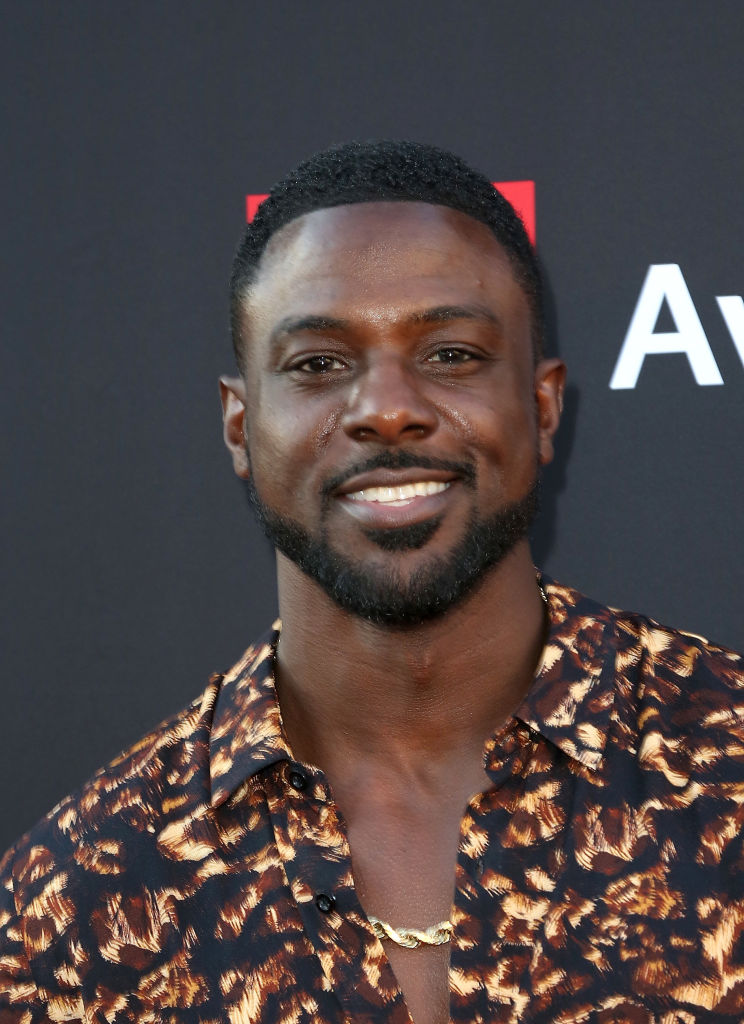
Lance on Building a Successful Life
Success hasn’t come to Lance Gross in every part of his life, however. Being raised in a household by parents who’ve been married for almost half a century has made him long for a love like theirs. Yet it’s something he just hasn’t found yet. “I’ve learned our generation isn’t the same. We don’t think the same and people aren’t into working on themselves”. But although he recognizes the differences in a world that seems to not be conducive to a love that lasts forever, Lance stresses the qualities in himself that make him an ideal mate. “If I’m in love with you, I’m in love with you. You don’t have to worry about anything”, he says, “If you’re mine, I’m yours. I’ll give you everything that you need”.

Lance On His Love
Speaking about his wife, Rebecca Jefferson, he says. “She was my best friend first. I can sit alone in silence with her and have the time of my life, we’re good. I love when a woman is comfortable in her skin and doesn’t have to do much. Just be effortlessly fly whether it’s the way she dresses or just the way she carries herself. I think that’s the flyest thing in the world. That confidence.”
SIGN UP FOR OUR NEWSLETTER HERE!
Lance On Being Kind and Complimenting Others
When people say “I know you hear this all of the time”…it’s like ‘No’. Every time somebody gives me a compliment, I appreciate it.” Never forgetting his roots in Oakland, CA, an area often stricken by youth violence, he doesn’t shy away from the ability he has to make a change in people’s lives. “I have the responsibility to be a good role model especially to African American men and I look forward to being that role model for my daughter as well. It brings me joy when people from Oakland say ‘we have so much negativity here and you’ve proven that you can get out of the city and do great things’, as long as I’m setting a good example I think I’m doing my job”.



